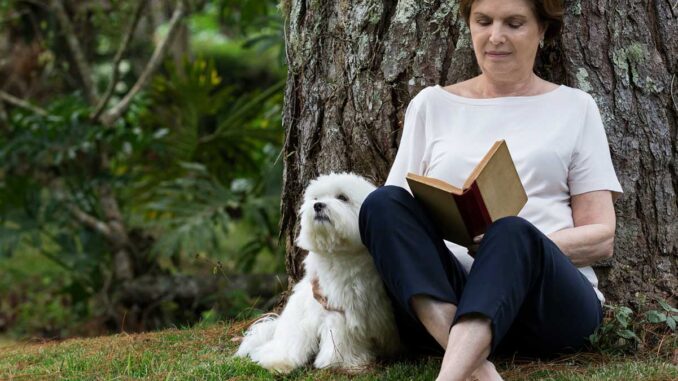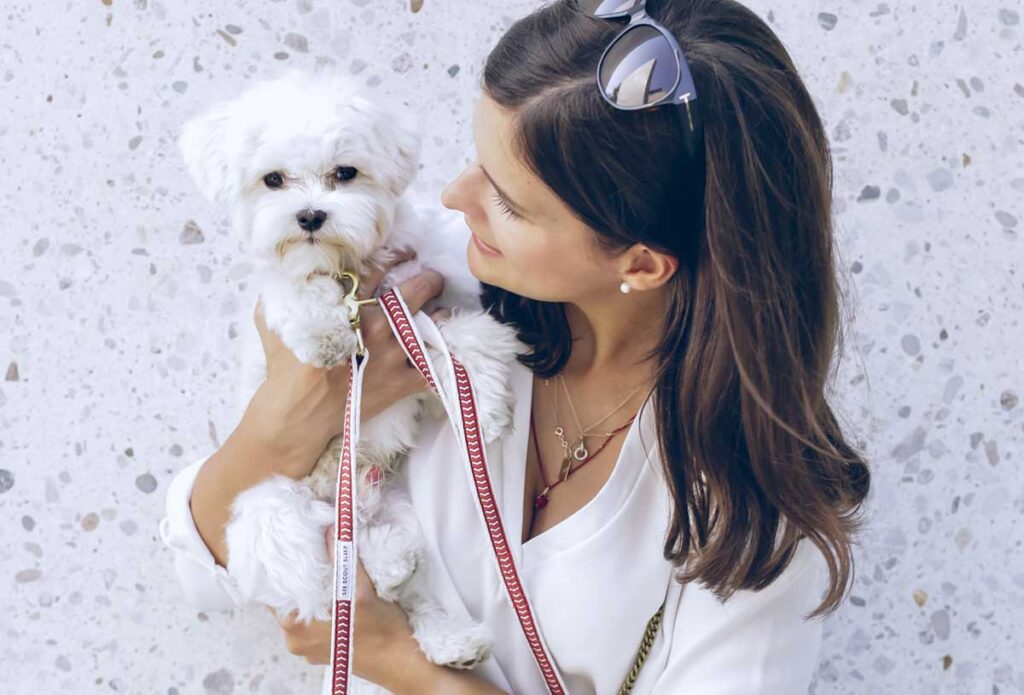
Are Maltese good for seniors?
Maltese need moderate exercise
The Maltese breed is a somewhat lower energy dog. They are happy with a small walk or quiet playtime in a small garden. They are still more active or need more room and exercise than other breeds including Chihuahuas or French Bulldogs, but they will mostly be content with indoor playing and shorter daily walks. Their shorter size also means that they can easily be exercised by throwing them a ball at the park or even with playful indoor games.
Maltese are easy to carry
Seniors and retirees love the Maltese’s adorable looks but also appreciate the practicality of owning a dog that is easy to carry around. Maltese dogs only weigh from 6 to 9 pounds at adult size (most of the time closer to 6 pounds). So, you won’t be hurting your back while giving them a ride on your shoulder.
What are the downsides for seniors?
Regular grooming
However, the practicality of the breed for older people gets a little bit more complicated when talking about grooming needs. Maltese dogs have beautiful white coats that don’t shed but they do require daily brushing. The American Kennel Association mentions that Maltese dogs “should also have regular baths and coat conditioning to keep their hair looking its best.”

Excessive barking
Seniors considering the Maltese breed should also be aware that most Maltese dogs bark a lot. This could be an issue for older people living in apartment communities. DogTime states that “The Maltese share a trait with most toy-sized dog breeds: they have a particularly sensitive temperament that makes them prone to bark uncontrollably”.
All of these factors explain the lower score for seniors and explain why they may not be the best fit for all older people, despite an overall great personality, convenient small size, and stunning looks.
Go back to best old dogs for old people.
Learn more about the breed (external links):
- Maltese Dog Breed Information (American Kennel Club)
- Maltese Dog Breed Information, Pictures, Characteristics & Facts (DogTime)
Disclaimer: This website's content is not a substitute for veterinary care. Always consult with your veterinarian for healthcare decisions. Read More.


